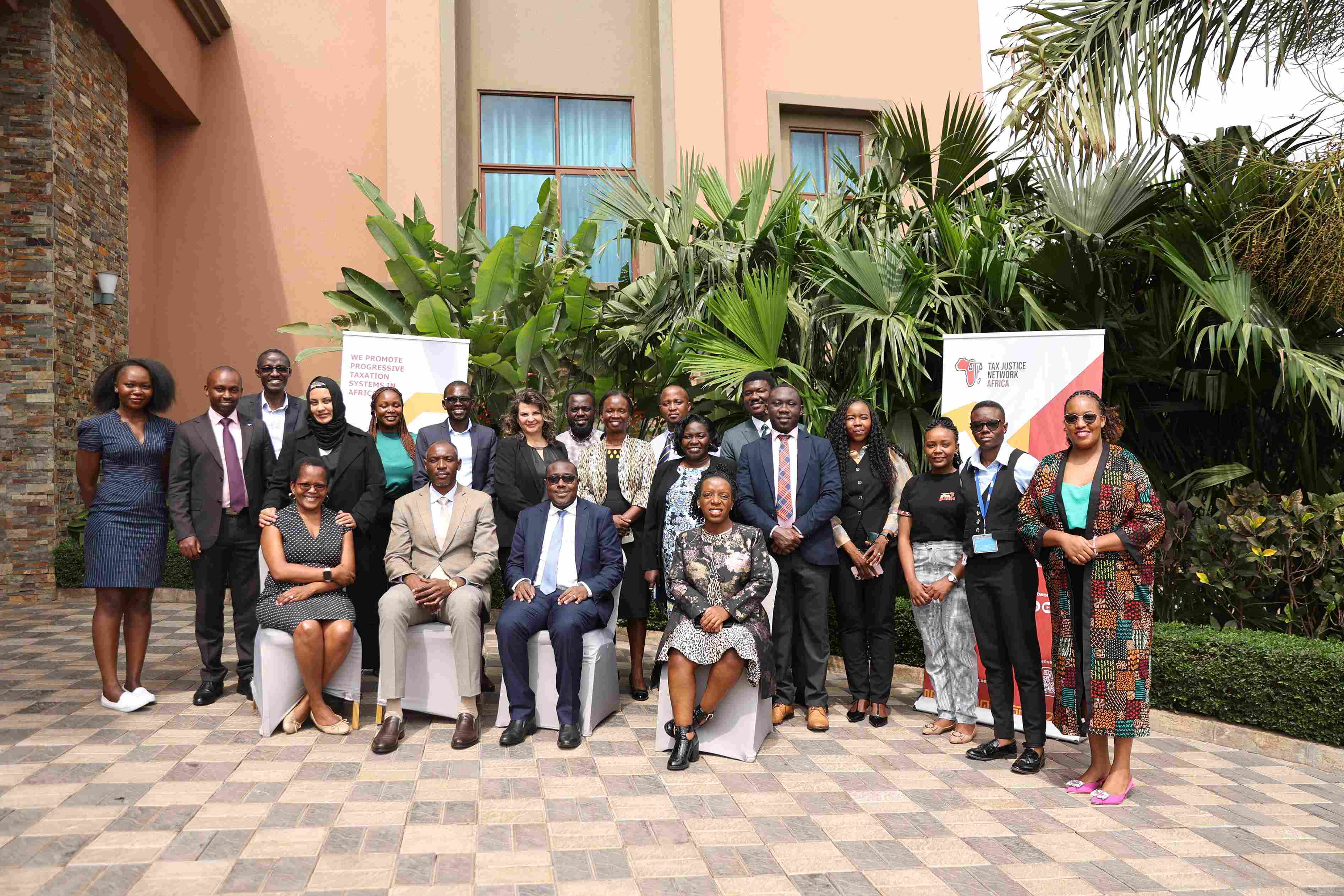Date

Representatives from key Ugandan government agencies, led by the Uganda Revenue Authority (URA), officially endorsed the Anti-IFFs Policy Tracker as part of their commitment to addressing illicit financial flows (IFFs) across Africa.
This occurred during the second piloting workshop of the Anti-IFFs Policy Tracker, held in Kampala, Uganda.
The workshop, organized by Tax Justice Network Africa (TJNA) in collaboration with the African Union’s Economic Development, Trade, Tourism, Industry, and Minerals Department (AU-ETTIM) and the Africa Tax Administration Forum (ATAF), brought together Ugandan government representatives to collaboratively assess national strategies for combating IFFs using the tool.
Participants in the workshop evaluated indicators from four key thematic areas, namely: policy and legislative frameworks, institutional frameworks, information and data frameworks, and interagency cooperation. Each area was reviewed and scored based on effectiveness, with decisions supported by evidence. The Anti-IFFs Policy Tracker then captured these scores.
The Policy Tracker draws on recommendations from key reports, including the High-Level Panel report on illicit financial flows from Africa (commonly known as the Mbeki Panel Report) and the High-Level Panel on International Financial Accountability and Transparency (FACTI Panel Report), which have extensively outlined strategies to combat IFFs.
In his opening remarks, the Uganda Revenue Authority’s Commissioner of Tax Investigations, Mr. Denis Kugonza Kateeba commended the collaborative efforts of all stakeholders involved in the workshop, emphasising the significant benefits that Uganda will gain from the Policy Tracker.
"The Anti-IFFs Policy Tracker being piloted in Uganda will give us valuable insights on how to collaborate effectively with various agencies across the economy. Our goal is to develop robust and inclusive strategies to combat illicit financial flows. This tool will serve as a guide for all stakeholders involved in different agencies. Ultimately, the Policy Tracker will bring us together on a shared platform, enabling us to unite in the collective fight against IFFs," Mr. Kugonza added.
In his remarks, ATAF’s Tax Audit Specialist Dr. Nyah Zebong, stressed on the importance of the Anti-IFFs Policy Tracker in strengthening anti-IFFs efforts across African countries. He pointed out that while the tool is fully developed, it continues to be refined through feedback from countries participating in the pilot phase, providing an opportunity to roll it out practically and improve its effectiveness in addressing IFFs.
“For some time, the AUC, ATAF, and TJNA have been at the forefront of efforts to combat IFFs in Africa, with the Anti-IFF Policy Tracker playing a central role in this initiative. Developed through a collaborative process, ATAF provided technical support through the Joint Technical Committee (JTC), which reviewed and offered suggestions on cross-border and tax-related issues crucial to tackling IFFs. We want to extend our special thanks to the URA for their unwavering support throughout this process. Your assistance, feedback, and support have been invaluable in helping us reach this point,” Dr. Zebong added.
The Anti-IFFs Policy Tracker is designed for government institutions, tax policymakers, and civil society organizations that work on combating IFFs. It offers an updated framework for tracking the implementation of policies and actions aimed at addressing IFFs.
The African Union Commission’s Tax and Domestic Resource Mobilisation Adviser, Ms. Luckystar Miyandazi, highlighted that the Anti-IFFs Policy Tracker represents a bold and proactive strategy to combat IFFs in Africa. She emphasized that this tool provides real-time data and policy insights, enabling African countries to respond more effectively and coordinate their efforts against IFFs in a comprehensive manner.
"Endorsed during the 7th Specialised Technical Committee in July 2024, the tool has been requested by AU Member States for rollout, with a report to be presented at the 8th Ordinary Session later this year. This pilot's success will depend on the valuable input and feedback from experts across various sectors of the Ugandan government,” Ms. Miyandazi added.
TJNA’s Partnerships and Institutional Learning Manager, Nelly Busingye, lauded the Ugandan government and the workshop participants for their proactive approach to identifying vulnerabilities within Uganda’s financial system, especially high-risk areas prone to IFFs. This provided a structured and data-driven evaluation of Uganda’s progress.
“This pilot phase is crucial for identifying policy gaps and high-risk areas within financial systems. It will enable the development of policy and institutional recommendations that can lead to meaningful reforms in the fight against IFFs,” Ms. Busingye emphasised.
The Policy Tracker provides an objective, standardized, and data-driven method for assessing progress, identifying policy gaps, and driving effective reforms to curb IFFs.
Related articles
For further details about the Anti-IFFs Policy Tracker, please contact Francis Kairu at fkairu[@]taxjusticeafrica.net.